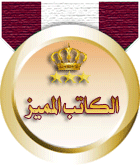Erbil (AsiaNews): "Today we can say that Iraqi Kurdistan is safe and its government is of great help to us. Now we wait for the liberation of our lands but, more importantly, we expect them to be made safe before we can start reconstruction,” said Mgr Bashar Warda, Chaldean Archbishop of Erbil (Iraqi Kurdistan).
The prelate spoke to AsiaNews a year after the great exodus of the Christian community that lived in the Nineveh plan, following the push of the Islamic state.
Faced with a "complicated" regional political situation, "all we can do is help our people, foster mutual cooperation and encourage them to stay with aid programmes at this difficult time,” said the prelate. For him, promoting education against Jihadi barbarity is key.
Overnight on 6-7 August of last year, hundreds of thousands of people left the overwhelmingly Christian villages in Nineveh plain, from Qaraqosh to Karameles, and found refuge in Erbil and other areas of Kurdistan.
Last week, Chaldean Patriarch Raphael I March Louis Sako sent Pope Francis and Catholic bishops around the world a prayer to remind them of the tragedy of this persecuted community. In it, he appealed for peace and security "before it is too late" and for the strength "to stand fast in this violent storm."
Mgr Warda has led rescue and aid work of Christian refugees. Acknowledging "the great help received," he said that 12 months after the exodus of biblical proportions, "we have no families in tents, classrooms or uncompleted buildings."
The Chaldean Church rented "more than 570 flats and houses", which come on top of 1,670 prefabricated houses and financial support to families who rented accommodations on their own."
"A good shelter, education and especially health care" are still the primary services that must be provided to refugee families, the Chaldean Archbishop of Erbil said.
The Church runs two clinics operate in the capital of Iraqi Kurdistan: Mat Shmone and Mar Yousif (St Joseph). They serve thousands of people, more than 2,000 patients at St Joseph alone. The cost, which stands at around US$ 42,000 a month, is covered by donations.
“Thanks to the collaboration of international NGOs and Catholic charities, 11 schools have been built. As of June of this year, some 13,000 families have been receiving food.”
"As a Church, we are trying to ease the hardships of everyday life, the prelate said. “The situation is far from ideal, but we are doing our best to ensure that they [the refugees] live in dignity.”
The latter “have little hope in the future,” he added, “but we must encourage them, stay close to them, listen to them, and give them what they need. For me, hope is no mere concept. It is a way of life and we have to understand this in our daily life."
For some sceptics, it is crazy to invest large sums of money in assistance projects - health, housing, education - but "as a bishop I must take care of the daily needs of my people and show them that Christ’s love transcends the evil committed by the Islamic state."
In the long term, he warns, the greatest dangers facing Christians in the Middle East are "ignorance and illiteracy." For this reason, “we are working to help our young people complete their studies." For him, it is hard to imagine a future without Christian education for boys and girls.
"Our ancestors chose education as a means of promoting culture in the land of Mesopotamia, which was theirs when it was invaded from the Arab desert at the time of Islam’s expansion,” he said. “The situation is very similar today, with Christians facing the onslaught of the Islamic State."
Among Iraqi intellectuals the contributions Christians have made to philosophy, history, mathematics and science are well recognised.








 المشاركات
المشاركات نقاط
نقاط التقييم
التقييم










